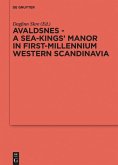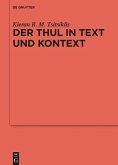This book seeks to revitalise the somewhat stagnant scholarly debate on Germanic rulership in the first millennium AD. A series of comprehensive chapters combines literary evidence on Scandinavia's polities, kings, and other rulers with archaeological, documentary, toponymical, and linguistic evidence. The picture that emerges is one of surprisingly stable rulership institutions, sites, and myths, while control of them was contested between individuals, dynasties, and polities. While in the early centuries, Scandinavia was integrated in Germanic Europe, profound societal and cultural changes in 6th-century Scandinavia and the Christianisation of Continental and English kingdoms set northern kingship on a different path. The pagan heroic warrior ethos, essential to kingship, was developed and refined; only to recur overseas embodied in 9th-10th-century Vikings. Three chapters on a hitherto unknown masonry royal manor at Avaldsnes in western Norway, excavated 2017, concludes this volume with discussions of the late-medieval peak of Norwegian kingship and it's eventual downfall in the late 14th century. This book's discussions and results are relevant to all scholars and students of 1st-millenium Germanic kingship, polities, and societies.
Hinweis: Dieser Artikel kann nur an eine deutsche Lieferadresse ausgeliefert werden.
Hinweis: Dieser Artikel kann nur an eine deutsche Lieferadresse ausgeliefert werden.








